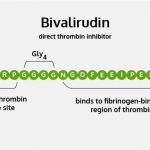
Contents
Can Omega-3 Fish Oils Help With Weight Loss and Reduce Belly Fat?
Omega-3 fish oils are popular health supplements known for aiding weight loss and reducing belly fat. These oils have positive effects on appetite and metabolism.
Omega-3 fish oils are widely available and popular, but their benefits and mechanisms may be unknown to some. This article explores how omega-3 fish oils can be used for weight loss, their role in reducing belly fat, and more.
Fatty acids come in two main types: saturated and unsaturated. All fatty acids consist of long chains of hydrogen and carbon atoms. Saturated fatty acids have hydrogen atoms filling all the available spaces next to carbon atoms. On the other hand, unsaturated fatty acids may have double bonds instead of hydrogen atoms.
Omega-3s are a type of polyunsaturated fatty acids. The "3" in omega-3 refers to the carbon atom that has a double bond instead of a hydrogen atom.
Omega-3 fatty acids play vital roles in maintaining the normal structure and function of the body. They also possess anti-inflammatory properties that can alleviate symptoms of chronic inflammatory conditions like arthritis.
In addition to these benefits, omega-3s can protect against conditions such as cancer, diabetes, and heart disease. They also show promise in managing psychological conditions like bipolar disorder, depression, and schizophrenia.
What are the types of omega-3 fatty acids?
There are two primary types of omega-3 fatty acids:
Essential fatty acids:
While your body can produce most fatty acids it needs, it cannot create linoleic acid (an omega-6 fatty acid) and alpha-linolenic acid (ALA, an omega-3 fatty acid). These two fatty acids can only be obtained through diet or supplements, such as fish oil. Hence, they are called essential fatty acids.
These fatty acids are crucial for normal body growth and repair, as well as the production of other fatty acids.
Long-chain polyunsaturated fatty acids
Your body can convert the essential fatty acid ALA into two different omega-3 fatty acids: docosahexaenoic acid (DHA) and eicosapentaenoic acid (EPA). However, this conversion process is limited by the availability of enzymes within the body. Research suggests that only 2% to 10% of consumed ALA gets converted into DHA and EPA. Therefore, health care professionals often recommend a daily intake of around 200 to 300 mg of DHA and EPA.
These fatty acids are important for maintaining normal brain and eye function, as well as preventing diseases like depression and inflammation.
DHA and EPA can be obtained by consuming fatty fish or taking fish oil supplements.
What are the health benefits of omega-3 fish oils for weight loss?
Although it may seem counterintuitive to consume high-calorie fats for weight loss, omega-3s offer several potential benefits for appetite and metabolism, including:
1. Reduced hunger
Studies suggest that fish oil may decrease appetite in individuals following a weight loss diet. Research conducted on healthy participants found that those who consumed more than 1.3 grams of fish oil per day felt fuller for up to 2 hours after a meal compared to those who consumed less than 0.3 grams per day. However, the effects may vary depending on diet and health status. Omega-3 fish oils increased levels of a fullness hormone in obese people but decreased these hormone levels in nonobese individuals. Further research is needed for conclusive findings.
2. Improved metabolism
Your metabolic rate indicates the number of calories you burn each day. A higher metabolic rate leads to increased calorie burn and weight loss. Two studies conducted on older women and healthy adults who consumed 3 grams of fish oil daily for 12 weeks showed an increase in metabolic rates by 14% and 5.3%, respectively. These studies also observed an increase in muscle mass among participants. Since muscle burns more calories than fat, this finding may explain the increased metabolic rates.
3. Enhanced effects of exercise
Fish oil may increase calorie and fat burn during exercise by helping the body switch from carbohydrates to fats as a source of fuel. A study on women who consumed 3 grams of fish oil daily for 12 weeks showed a 10% increase in calorie burn, a 14% increase in metabolic rates, a 19% increase in fat burning during rest, and a 27% increase in fat burning during exercise. Thus, combining fish oil with exercise may enhance its effectiveness for fat loss compared to exercise alone.
4. Increased fat loss
Even without weight loss, fish oil supplementation may result in fat loss. If you are simultaneously building muscle (e.g., through exercise) while losing fat, you may not see changes in weight due to the increase in muscle mass. A study conducted on 44 individuals who took 4 grams of fish oil daily did not lose weight, but they lost 1.1 pounds (0.5 kilograms) more fat and gained 1.1 pounds (0.5 kilograms) more muscle compared to those who did not take fish oil. Additionally, a review of 21 studies indicated that fish oil is effective in reducing waist circumference and waist-to-hip ratio.
How much fish oil should you take?
According to the U.S. Food and Drug Administration (FDA), consuming up to 3 grams of omega-3 fish oil supplements daily is considered safe. The European Food Safety Authority (EFSA) allows a maximum intake of 5 grams of fish oil supplements per day.
However, omega-3s can have adverse effects, such as blood-thinning effects, and should be avoided by individuals with bleeding disorders or those taking blood thinners.
Certain fish oil supplements, like cod liver oil, contain high amounts of vitamin A and should be avoided by young children and pregnant women due to potential toxicity risks in large doses.
While taking supplements, it is important to be cautious of counterfeit brands or low-quality ingredients that may have harmful effects. An ideal fish oil supplement should contain at least 50% DHA and EPA, such as 500 milligrams per gram of fish oil.
Incorporating fish oil into your regular diet can help you meet your nutritional needs and achieve your long-term weight or fat loss goals.
QUESTION
American Journal of Clinical Nutrition: "Achieving optimal essential fatty acid status in vegetarians: current knowledge and practical implications," "Combining fish-oil supplements with regular aerobic exercise improves body composition and cardiovascular disease risk factors."
Appetite: "A diet rich in long chain omega-3 fatty acids modulates satiety in overweight and obese volunteers during weight loss."
Applied Physiology, Nutrition, and Metabolism: "Variable effects of 12 weeks of omega-3 supplementation on resting skeletal muscle metabolism."
Arthritis Foundation: "8 Food Ingredients That Can Cause Inflammation."
Biochimie: "Docosahexaenoic acid (DHA) and the developing central nervous system (CNS) – Implications for dietary recommendations."
Current Treatment Options in Cardiovascular Medicine: "Omega-3 Fatty Acids and Cardiovascular Disease: Are There Benefits?"
Drugs: "Omega-3 fatty acids in the treatment of psychiatric disorders."
EFSA: "Scientific Opinion on the Tolerable Upper Intake Level of eicosapentaenoic acid (EPA), docosahexaenoic acid (DHA) and docosapentaenoic acid (DPA)."
EUFIC: "The importance of omega-3 and omega-6 fatty acids."
European Journal of Clinical Nutrition: "Omega-3 fatty acids: a review of the effects on adiponectin and leptin and potential implications for obesity management."
FDA: "Petition for a Health Claim for Eicosapentaenoic Acid and Docosahexaenoic Acid and Reduction of Blood Pressure in the General Population."
Journal of Cardiovascular Pharmacology: "Fish oil reduces heart rate and oxygen consumption during exercise."
Journal of the International Society of Sports Nutrition: "Effects of supplemental fish oil on resting metabolic rate, body composition, and salivary cortisol in healthy adults."
National Center for Complementary and Integrative Health: "5 Things To Know About Omega-3s for Heart Disease."
NIH: "Omega-3 Fatty Acids."
Nutrition Bulletin: "The health effects of dietary unsaturated fatty acids."
PloS One: "Does Fish Oil Have an Anti-Obesity Effect in Overweight/Obese Adults? A Meta-Analysis of Randomized Controlled Trials," "Omega-3 Fatty Acid Supplementation for 12 Weeks Increases Resting and Exercise Metabolic Rate in Healthy Community-Dwelling Older Females."
Reviews in Obstetrics & Gynecology: "Omega-3 Fatty Acid supplementation during pregnancy."


